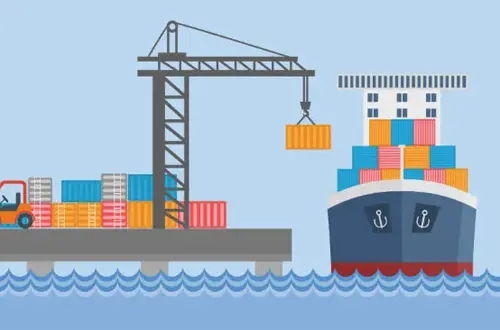How to Deal with the Logistics Labor Shortage in 2024
With the continuous development of global trade, the business volume of the international logistics and transportation industry continues to grow, and the demand for labor is also increasing. Especially in the fields of e-commerce and cross-border trade, the demand for logistics and transportation has shown explosive growth. Modern international logistics and transportation require professional skills and knowledge, such as supply chain management, logistics informatization, multilingual communication and other capabilities, which place higher requirements on the quality and skills of the labor force.
Although the demand for labor in the international logistics and transportation industry continues to increase, the supply of labor that meets the requirements is insufficient in the market. This is mainly due to the fact that the working environment in the logistics and transportation industry is relatively difficult, the work intensity is high, and the physical and mental quality requirements of workers are relatively high, which discourages some potential labor forces.

The international logistics and transportation industry needs to deal with cultural, legal, language and other differences in different countries and regions. Therefore, the demand for diversification and internationalization of the workforce is also increasing. Enterprises need professionals with cross-cultural communication, multi-lingual capabilities, international trade rules, etc. to meet business needs.
In addition to the above reasons, factors leading to labor shortages in the logistics industry include
Aging and increased labor mobility
As the demographic structure changes, the number of older workers decreases, and their work ability and employment rate decline, which leads to labor vacancies in the logistics industry. At the same time, the increased mobility of labor between different industries and regions has also led to the brain drain in the logistics industry.
Career recognition is not high
The logistics industry is still considered a low-skill, low-status occupation, which has led to a lack of interest in the industry and a reduced talent supply. At the same time, emerging industries such as technology and finance have attracted a large number of young people to join, further challenging the labor supply in the logistics industry.
A strategic guide to coping with the logistics labor shortage
Strengthen training and education
Based on the characteristics and needs of the logistics industry, carry out targeted training and education activities to improve the professional skills and quality of employees. This can be achieved by cooperating with educational institutions to set up specialized logistics majors or courses, or through in-house training.
Provide competitive salary and benefits
Labor shortages in the logistics industry are often related to inadequate remuneration and benefits. Ensure wages and benefits packages are competitive to attract and retain talent. This may include offering signing bonuses, performance-based incentives, health care benefits, and retirement plans.
Optimize recruitment strategy
Logistics companies can optimize recruitment strategies, expand recruitment scope, and attract more talents. For example, recruitment information can be released through social media, recruitment websites and other channels, strengthen cooperation with universities, vocational training institutions, etc., and carry out campus recruitment and other activities.
Promote intelligent technology
With the development of intelligent technology, more and more logistics companies have begun to adopt intelligent technology to improve efficiency and reduce costs. By promoting intelligent technology, we can reduce our dependence on manpower and alleviate the problem of labor shortage.
Establish a reasonable salary incentive system
Establishing a fair and reasonable salary system can stimulate employees' work enthusiasm and enthusiasm and improve their work efficiency and quality. At the same time, a reasonable salary system can also attract more talents to join the logistics industry.
improve working conditions
Create a positive work environment by addressing issues such as safety, workload management, and work-life balance. Investing in ergonomic equipment and implementing flexible scheduling options can improve employee satisfaction and retention.
Encourage diversity and inclusion
The logistics industry should encourage diversity and inclusion and attract more talents from different backgrounds and professions to join. This can increase the innovation and competitiveness of the industry, while also alleviating the problem of labor shortage.
Advocate for industry support
Work with industry associations, government agencies and policymakers to address systemic challenges facing the logistics labor market. Advocate for policies and initiatives that support workforce development, immigration reform, and job training programs.
By adopting a multifaceted approach that combines short-term interventions with long-term investments, logistics labor shortages can be better addressed and a resilient workforce built for the future.





